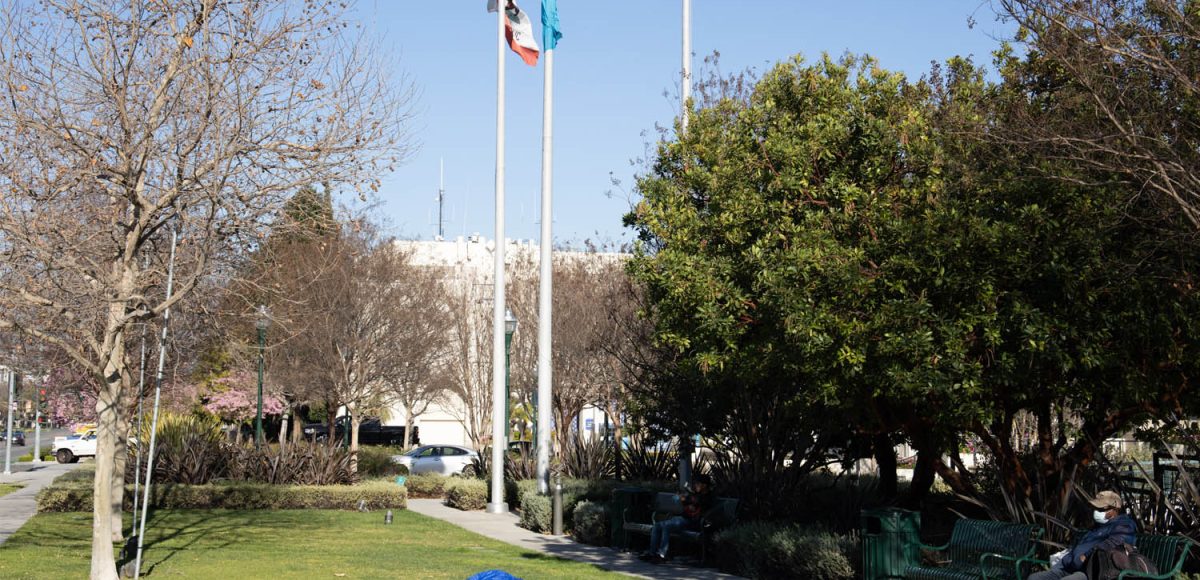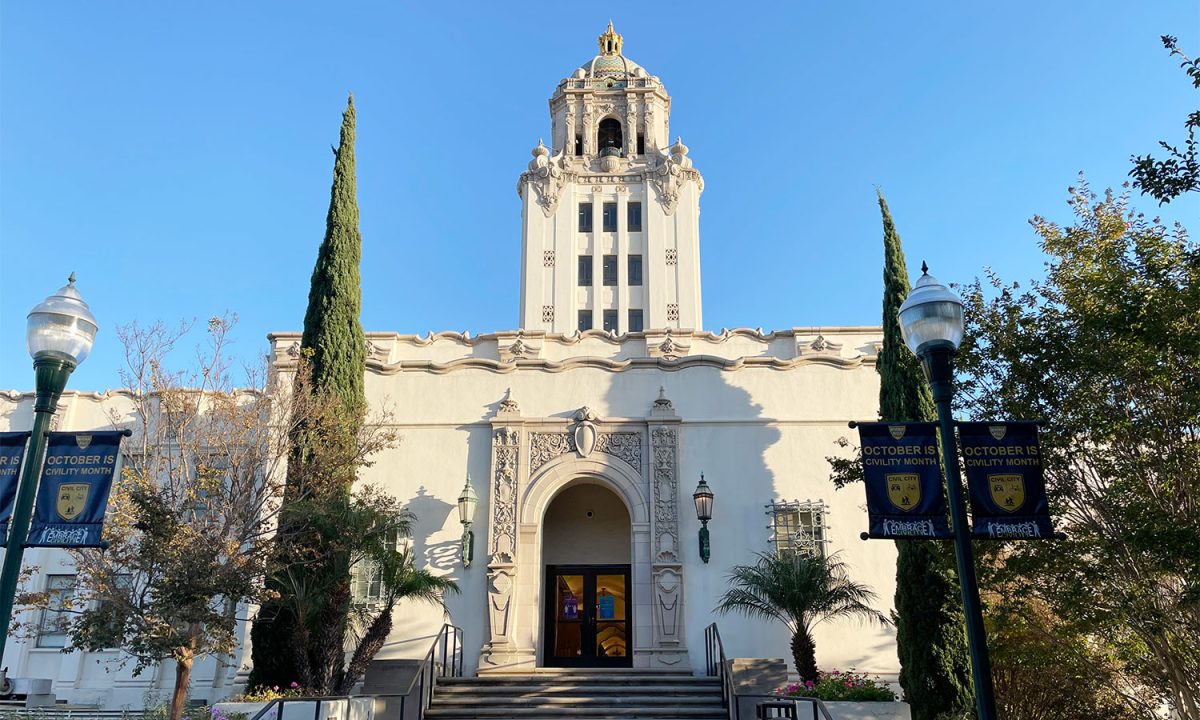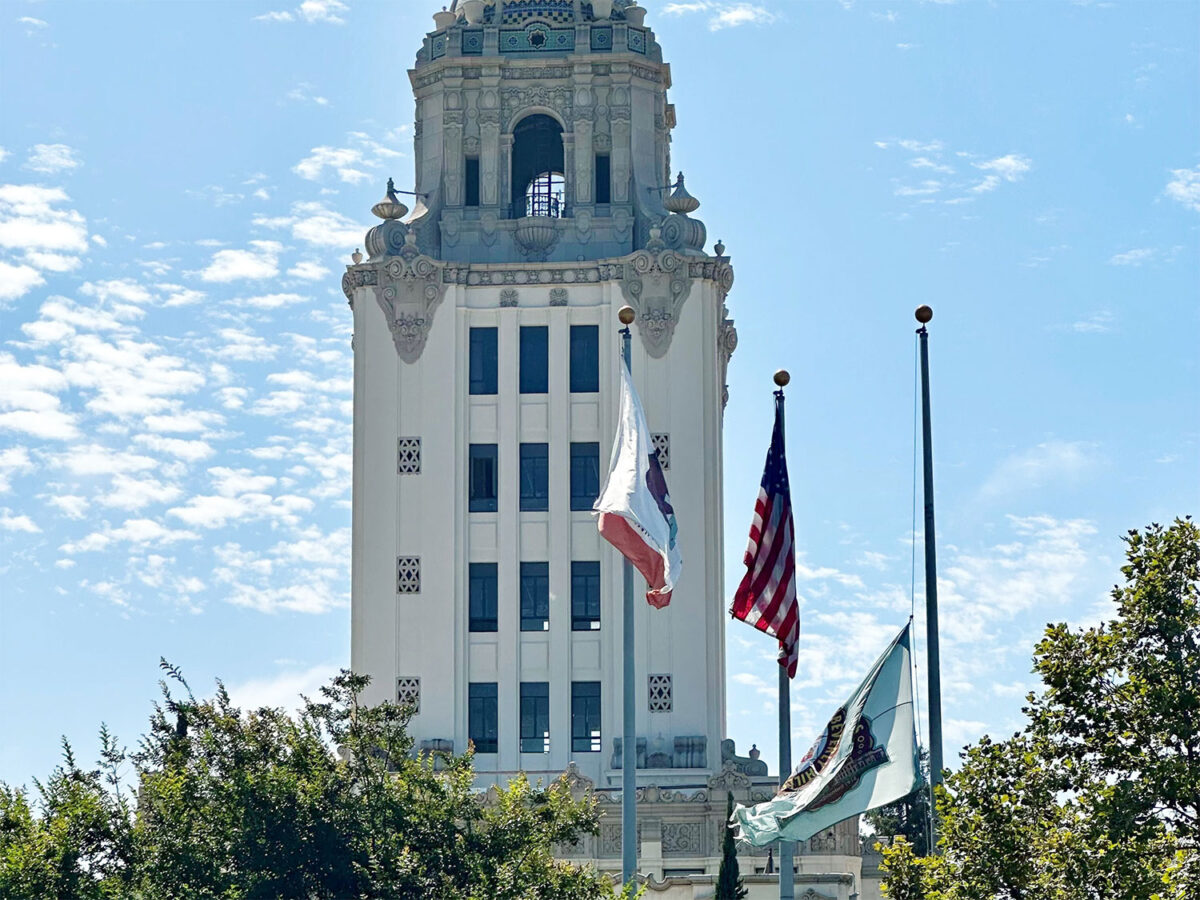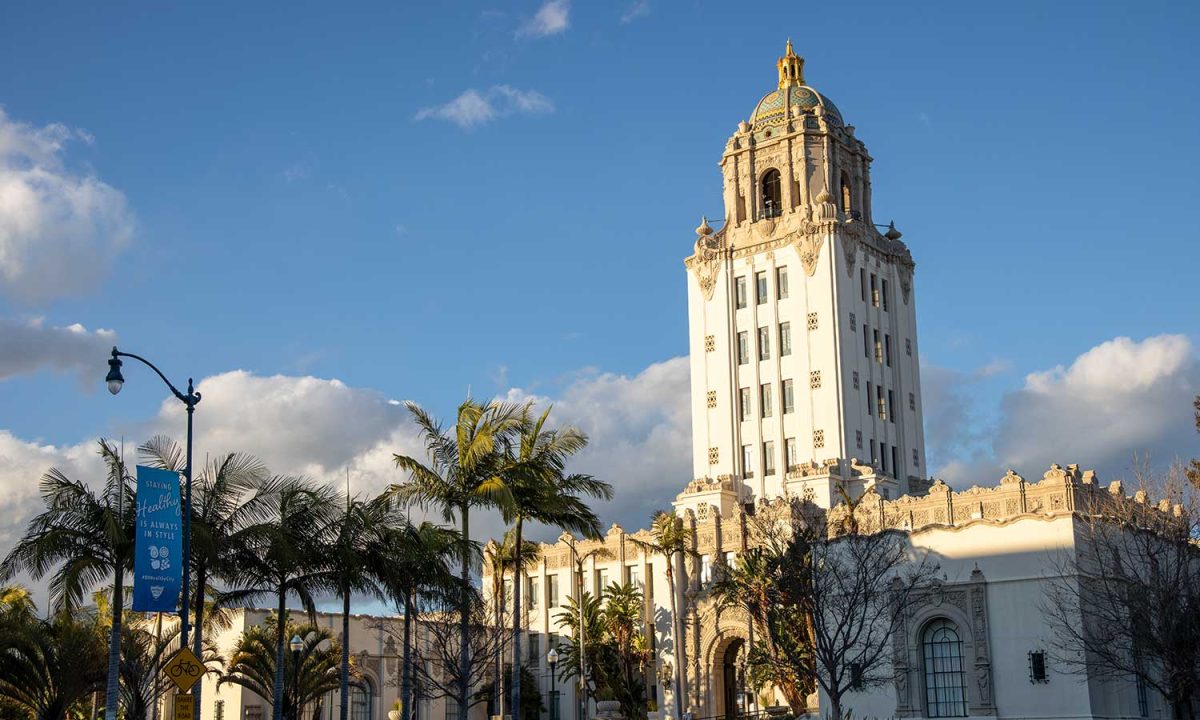For more than two weeks now, Beverly Hills Park Rangers have engaged in a pilot outreach program geared at patrolling the city’s parks and making contact with unhoused individuals at night. The expanded duties complement the existing city apparatus of outreach and support those experiencing homelessness or at risk of falling into homelessness.
Beginning July 5, Park Rangers started conducting outreach with unhoused individuals in city parks from 9 p.m. to 5:30 a.m. Though Rangers will eventually patrol city parks four nights a week, the overnight team currently works Tuesday and Wednesday nights with the purpose of connecting individuals with assistance and “advising on the park hours and rules,” according to a report compiled by staff.
“The city’s Park Rangers, through the new overnight outreach pilot, are hoping to provide a connection to information and resources, traditionally not available to the community, including the unsheltered, in the overnight hours,” Director of Community Services Jenny Rogers told the Courier in response to questions. “We are looking to educate on the variety of social services available through the city and our partner agencies and address health and safety issues in the parks at night.”
The Rangers have a broad mandate, which includes public relations and monitoring parks. The city has 26 full-time park rangers working from 5 a.m. to 10 p.m. Monday to Friday and 7 a.m. to 10 p.m. on the weekends. The city added one full-time and three part-time Rangers in its latest budget.
In response to an uptick in crime, the Park Rangers have been working in collaboration with law enforcement, Rogers says.
“Part of this work includes enforcement of the city’s municipal code that states that all city parks are closed from 10 p.m. to 6 a.m. every day and that camping in the parks is prohibited,” Rogers said.
Rogers pushed back on the notion that the program could be used to harass unhoused individuals into leaving the city when they otherwise might be asleep, saying that the initiative only seeks to inform unhoused people “about social services available through the city’s Social Services Safety Network” and “the rules and regulations of the park in the city within which they are currently camping.”
At a June meeting of the city’s Human Relations Commission, the commission highlighted the city’s multi-agency approach to addressing the houseless crisis, which involves Park Rangers, Ambassadors, and the Beverly Hills Outreach Team (BHOT).
The commission heard a story about one unhoused person who stays mainly in Roxbury Park and “hoards bags.” After months of contact, “two of our Rangers approached this individual and really pressed upon him the need for him to condense from 30 bags to less.” With the individual’s permission, Rangers helped reduce the number of bags from 30 to seven.
The Park Rangers work in concert with BHOT, which specializes in connect- ing unhoused people and people at risk of becoming unhoused with resources. The team responds to calls from the fire and police departments, Park Rangers, Ambassadors, property managers and local businesses, and residents, according to BHOT lead outreach coordinator Kevin Connor.
“Once our team is contacted, we arrive at the scene and interview a person and provide referrals and resources to match the person’s needs based on the assessment,” Connor said. Common resources include mental health services, medical services, hygiene services, food outlets, and county and state assistance programs.
While BHOT offers Metro tap cards for transportation, they have recently started offering direct transportation, taking people directly to service providers. The pandemic had prevented BHOT from providing trans- portation services until now, but Connor says that he and the one other BHOT member have transported two individuals in the last two weeks.
Beyond offering aid to those experi- encing homelessness, BHOT also provides assistance navigating the sometimes byz- antine bureaucracies of social services, including Social Security, the Department of Social Services–even the Department of Motor Vehicles.
“We’ll sit at the DMV,” Connor said. “Do you know what the DMV’s like, sitting all day?”
The city also provides reunification services through BHOT, helping unhoused individuals connect with family members who sometimes live in other states, a process that involves calling the individual’s family and checking for active local warrants. After completing those steps, the city will pay for travel costs. Connor said that the city has reunited four individuals in the last month and a half.
Beverly Hills typically has a lower number of unhoused individuals within its borders than nearby cities, in part owing to its aggressive approach offering services and enforcing anti-camping ordinances. According to the 2020 Greater Los Angeles Homeless Count, the most recent data avail- able, Beverly Hills had only 19 unhoused residents, down from a peak of 31 in 2017. In contrast, West Hollywood counted 131 individuals in 2020. To the West, Westwood counted 142 and Culver City registered 236.
While the Los Angeles Homeless Services Authority recently postponed the release of the 2022 Greater Los Angeles Homeless Count, Rogers told the Courier that the city has “experienced a noticeable increase in homeless individuals and transients in our parks.” Anecdotal evidence suggests that the city is far from immune from the trends driving the unprecedented inequality in Los Angeles.
Officials shared with the commission how an ambassador recently made contact with an unhoused man coming out of a city parking structure and learned that he had formerly worked at one of the tony restaurants in the Business Triangle. After he was “discontinued” from the restaurant, according to Ambassador Jonathan Leon, he “began aimlessly wandering the Business Triangle.”







